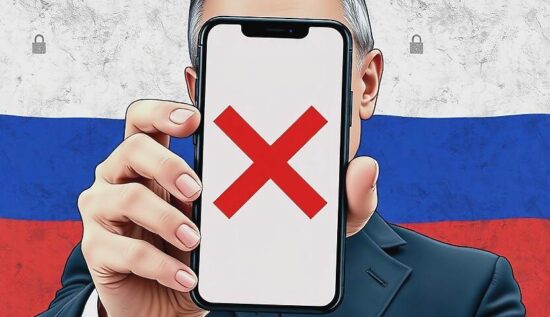A new package of laws aimed at combating cybercrime and phone fraud in Russia is set to introduce far-reaching changes that will affect both government agencies and private companies.
One of the key measures is the planned ban on Russian officials using foreign messaging services like WhatsApp for official communication. Instead, they will be required to use only Russian messaging services that are compatible with the “Unified System of Identification and Authentication”. This move is intended to strengthen state control over official communication and prevent the use of foreign platforms for criminal activities like phone fraud. According to Russian authorities, criminals are increasingly using foreign messengers for fraudulent activities that are difficult to trace.
The list of prohibited messengers will be compiled by the media oversight agency Roskomnadsor.
Another goal of the government is to ensure greater security on digital platforms. Online marketplaces, for instance, will be required to conduct an identity check of their providers, which will primarily affect platforms with a user base of over 200,000 people.
For certain online services, such as microcredit applications, a biometric identification is set to be introduced. This will ensure that only authentic applications are processed.
A central element of the package also concerns communication over the phone and internet. Mobile phone users will have the right to block unwanted calls and spam messages in the future. Additionally, all international calls will be clearly identifiable, enabling users to quickly determine whether a call is genuine or potentially a scam.
The planned changes are also intended to support law enforcement agencies in their fight against crime. The authorities will receive more powers to retrieve information from telecommunications companies and digital platforms when necessary for the investigation of crimes.
The law changes are a response to the growing threat of phone fraud, which has increasingly been carried out over international networks in recent years. President Vladimir Putin had criticized the high number of fraud cases in his December speech, stating that criminals had stolen over 250 billion rubles (around two billion euros) from Russian citizens in 2024.
The number of crimes related to information and communication technologies in Russia increased by 30 percent in 2023, according to RBK. Most cases are dropped due to the inability to identify the suspect, with this being the case for 71 percent of the initiated cases in 2023.
The planned measures are set to take effect this and next year, although there are also concerns that they may infringe on users’ privacy. A representative of the Ministry of Digital Development assured that the new regulations will not have a negative impact on citizens’ privacy.





